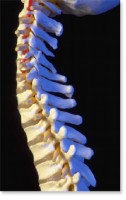 Reducing the Risk of Manual Material Handling
Reducing the Risk of Manual Material Handling
Back injuries account for one of every five injuries or illnesses in the workplace. Around 80% of these injuries occur to the lower back and are associated with manual material handling tasks. Oftentimes we get drawn into the “let’s get’ er done” attitude with many material handling tasks. The work does need to be completed, but taking a couple of seconds to determine the best way to do the job may prevent weeks of back pain.
When you lift…
DO
- Plant your feet firmly – get a stable base
- Keep the load close to your body
- Bend at your knees – not your waist
- Tighten your abdominal muscles to support your back
- Keep your back upright – keep it in its natural posture
- Use your leg muscles as you lift
- Get a good grip – use both hands
- Lift steadily and smoothly without jerking
- Breathe. If you must hold your breath to lift it, then it is too heavy
DO NOT
- Lift from the floor
- Lift loads across obstacles
- Twist and lift
- Lift from an uncomfortable posture
- Fight to recover a dropped object
- Lift with one hand (unbalanced)
- Lift while reaching or stretching
- Hold your breath while lifting – Get Help
Begin each material handling task with the end in mind: Where are you going to move it? Do you have a good grip? Is there a clear path?
Let’s work together to make Georgia a safer place to work.





